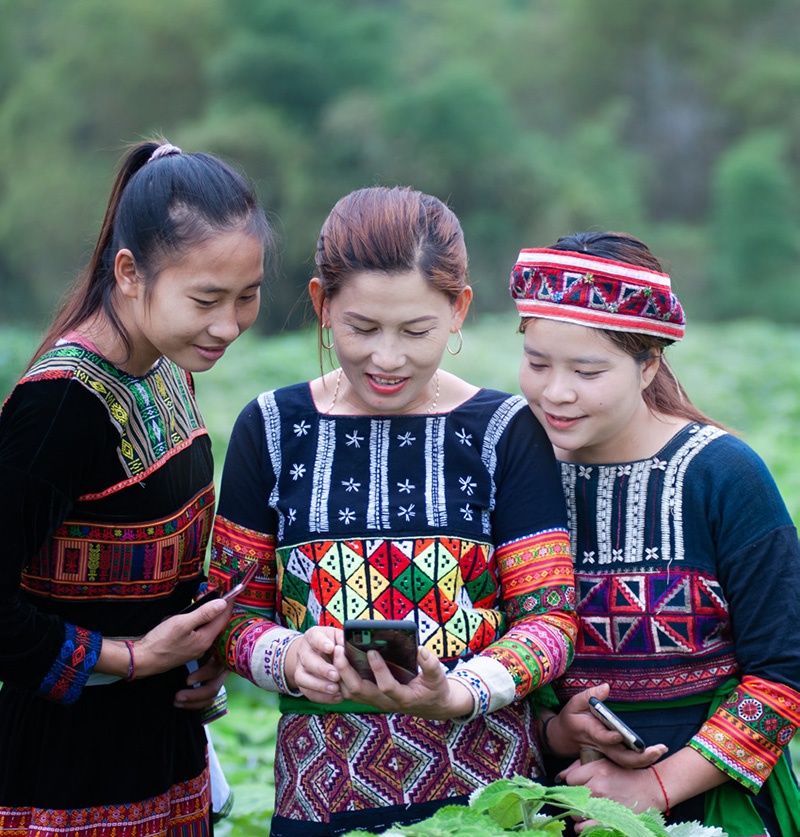Removing barriers for female development
 |
| Removing barriers for female development |
Making up 50.2 per cent of the population and 47.3 per cent of the labour force in Vietnam, women are increasingly asserting their important role in social life and the economy.
According to the Mastercard Index of Women Entrepreneurs 2021, Vietnam ranks sixth among the countries with the highest percentage of female entrepreneurs and is the only Asian representative in the global top 10. According to statistics from the Vietnam Association for Women Entrepreneurs, the number of female-owned small- and medium-sized enterprises (SMEs) has increased rapidly in recent years and currently accounts for a quarter of the total number of active SMEs in Vietnam, the highest in Southeast Asia.
With quick thinking, creativity, gentleness, and assertiveness, many women have shown efforts and bravery not inferior to men’s business.
Despite their increasing position, it is undeniable that women are still facing many challenges from gender stereotypes and inequalities in the working environment. The number of women-owned enterprises in Vietnam accounts for 26.5 per cent of the total number in the country, but mainly SMEs with limited access to support programmes and policies. Besides this, with gender characteristics, women also face more difficulties than men in realising business ideas.
In addition to the issue of capital, long-standing prejudices are placing many burdens on women as they have to take care of their families and be responsible for the business. Women also lack opportunities to participate in trade promotion activities and often have fewer opportunities to train and learn due to the burden of family life.
 |
A gender and labour market report by ILO Vietnam shows that women spend an average of 20.2 hours per week on house chores while men only spend 10.7 hours on these jobs. Nearly a fifth of men do not even spend any time doing housework. Also, the pressure from family responsibilities requires women to work more, often hindering their startup in business without the support of the family.
To remove these invisible barriers and encourage women to participate in economic development, Vietnam’s National Strategy on Gender Equality defines that by 2025, about 20,000 women will be supported to start a business. Many businesses and social organisations are also joining to create a workplace that promotes gender equality and gives more opportunities for women.
Some businesses in Vietnam focus on addressing gender inequality vertically by setting goals to increase the number of female leaders or the share of women in senior management. Others focus on solving gender inequality horizontally, such as by recruiting more women into technical and sales departments.
To assess the role and contributions of women in the development of enterprises, Vietnam Investment Review will organise an online talkshow titled “Empowering women in business and supporting startups”. The talkshow will take place at 9-11am on March 8 and livestreamed on baodautu.vn and VIR’s Facebook fanpages.
At the event, managers and representatives of social and international organisations, together with business leaders, will assess gender equality activities and share experiences to support female workers and disadvantaged women.
The participants will also make appropriate recommendations to help businesses set standards and establish a fair working environment, supporting women to improve their position in business startups, thereby contributing to promoting social and sustainable development.
What the stars mean:
★ Poor ★ ★ Promising ★★★ Good ★★★★ Very good ★★★★★ Exceptional
Themes: Empowering Women
- Female influence still to be attained
- Shaping Vietnam's corporate future: female board members show business excellence
- Nestlé Vietnam contributes to elevating the role of women across the supply chain
- Empowering female leaders in tech: insights and aspirations shared at KPMG Tech Innovator 2023
- Brighter Path programme hosts empowerment meeting for ethnic minority girls
Related Contents
Latest News
More News
- Nestlé Vietnam's Lunar New Year campaign reframes how Tet is counted (January 28, 2026 | 11:40)
- Tet event in Japan celebrates success of 14th National Party Congress (January 25, 2026 | 10:04)
- 14th National Party Congress wraps up with success (January 25, 2026 | 09:49)
- Congratulations from VFF Central Committee's int’l partners to 14th National Party Congress (January 25, 2026 | 09:46)
- List of newly-elected members of 14th Political Bureau announced (January 23, 2026 | 16:27)
- 14th Party Central Committee unanimously elects To Lam as General Secretary (January 23, 2026 | 16:22)
- List of members of 14th Party Central Committee announced (January 23, 2026 | 09:12)
- Highlights of fourth working day of 14th National Party Congress (January 23, 2026 | 09:06)
- Press provides timely, accurate coverage of 14th National Party Congress (January 22, 2026 | 09:49)
- Press release on second working day of 14th National Party Congress (January 22, 2026 | 09:19)

 Tag:
Tag:




















 Mobile Version
Mobile Version